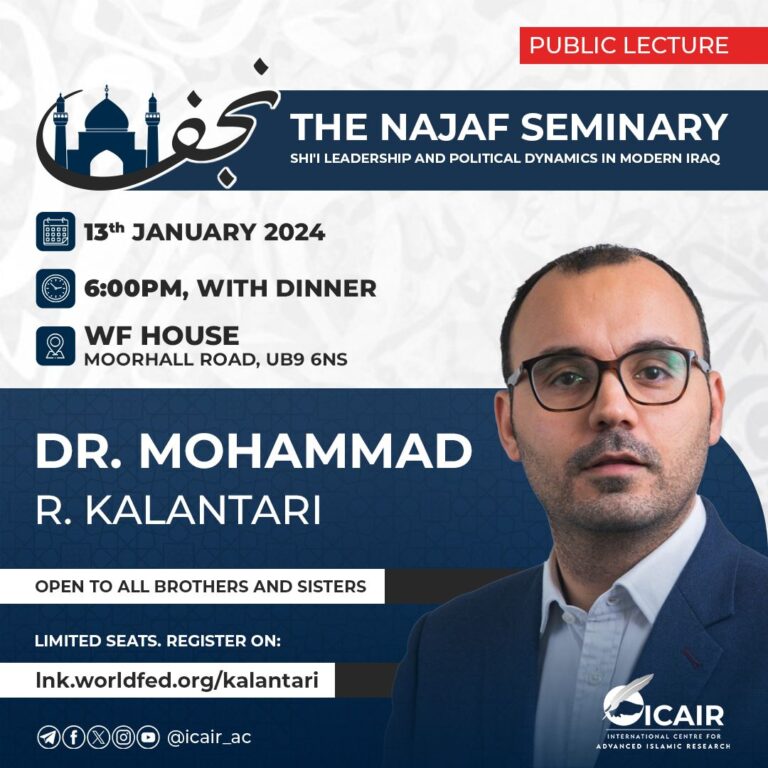The seminar was delivered by Dr Mohammad Reza Kalantari, Lecturer in International Relations of the Middle East and Director of the Centre for Islamic & West Asian Studies at Royal Holloway, University of London. Dr Kalantari’s research centres on the interplay of regional doctrines, elite ideologies, and political Islam. His latest book, The Clergy and the Modern Middle East: Shiʿi Political Activism in Iran, Iraq, and Lebanon (Bloomsbury, 2021), examines the role of Shiʿi clerics in contemporary politics. Through interviews with key figures, the book scrutinizes pivotal events like Iran’s 1979 Islamic Revolution, the 2003 Iraq War, and the 2006 war in Lebanon.
The event commenced with a brief Qur’an recitation and introductory remarks from the head of ICAIR, Alexander Khaleeli. Dr Kalantari then took the podium to deliver his presentation, which he began by providing an overview of the history of the Najaf Seminary. He then introduced his argument that in order to understand the stances taken by the Shi’i leadership in the face of particular social or political situations, one must consider the concept of ‘ḥifẓ bayḍati l-Islām’, i.e. ‘protecting the citadel of Islam’. Dr Kalantari spent the rest of the talk examining several examples, including the 1920 Iraqi revolt against British rule, the Hashemite monarchy, the repressive Ba’athist regime, the 1991 uprising, the US-led invasion in 2003, and the fight against ISIS, aiming to demonstrate how the concept of ‘ḥifẓ bayḍati l-Islām’ can explain the various stances taken by the Shi’i leadership in these different cases. Dr Kalantari’s presentation was followed by a thought-provoking question-and-answer session with the audience. The programme concluded with a short address from Arifali Hirji, Secretary-General of The World Federation. Dinner was provided after the programme, with the opportunity to network and engage in further discussions.





